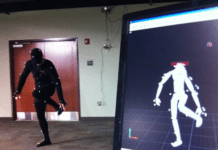
Augmented reality and artificial intelligence are two types of technology that people anticipated in the future. It was something that was talked about in sci-fi films and books. Never did anyone thinks we would have developed it by 2019. The technology is already present in the entertainment industry with games such as Pokémon Go and applications like Snapchat but it has also seeped into other sectors like tourism and education. There are, of course, many questions that business owners along with workers have on how AR and AI will influence the clients/customer.
Consumer-facing start-ups will be those that are affected the most. Big corporations like Apple and Microsoft have the means to explore the AR industry. They already have a large consumer base. Start-ups will have to find ways of introducing new technology that has never been seen before. Already there are things like smart mirrors that use AR to create a unique experience for the user. Some even make use of APIs that measure your body from a photograph with accuracy. Some are even so advanced that they can analyze situations to make decisions in real-time.

Michael Bower, CEO of Sellry, realizes that AR /AI technology will be common practice in a few years rather than a few decades. He mentions that it is still a bit early for people to accept AR /AI tech in their workplace or their homes. Enterprises are already toying with the idea. Some of them are trying new things, but Bower says that if the consumer doesn’t get it, it won’t work. He predicts that 2021 will be when consumers accept the technology to start using it. He says that they just have to get past the adopter stage first.
AI technology is already busy changing customer service experience. Bower mentions that if one considers cookies on a computer, it is already predicting what the consumer is interested in. He says, however, that cookies are not 100% accurate. They are unreliable. It is not the best form of marketing, he suggests that companies look at developing AI to tell the consumer something real about themselves. This includes suggestions on how to approach the customer, knowing who the customer is, and how the correspondence will affect the customer. He says that right now AI tech is not yet fully developed to do this properly.
Many companies don’t use data-based science to implement AI. These companies are encouraged to prepare for when it becomes widely available, says Bower. The first step is to deeply understand the customer along with the customer’s needs. After that, a higher fidelity version of current generation personalize specs with segmentation must be developed so that over the next few years, the AI system can tell customers what they want before they want it. He mentions that the full-scale adoption of AI needs significant preparation. It is a process that is very exciting.























